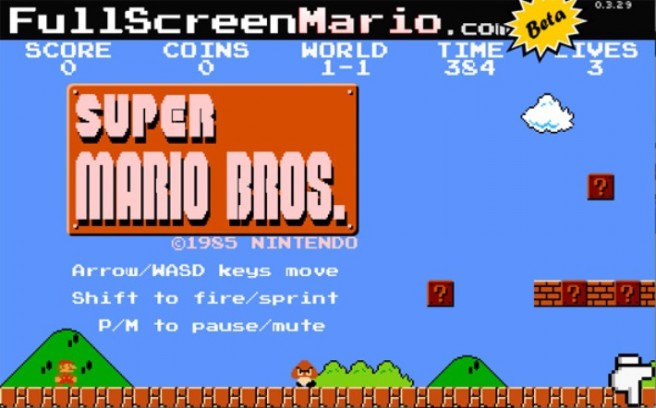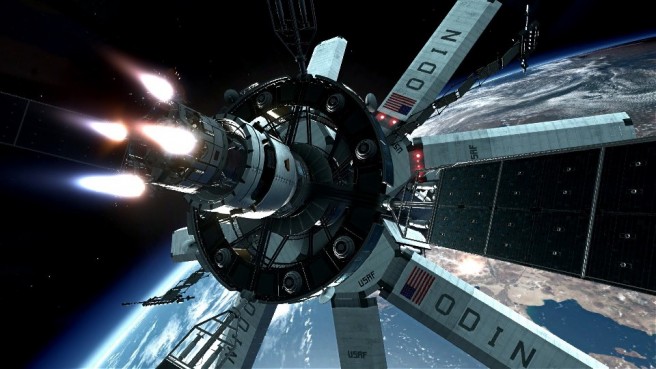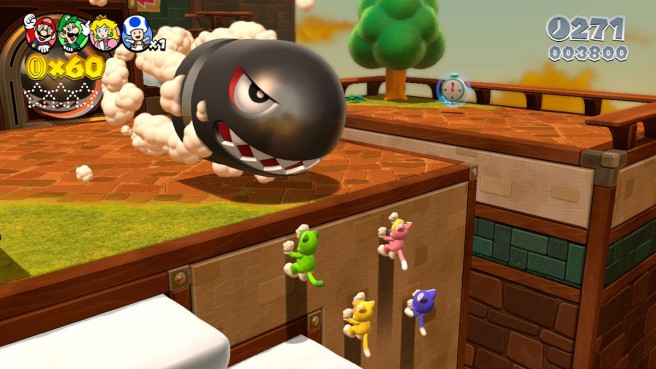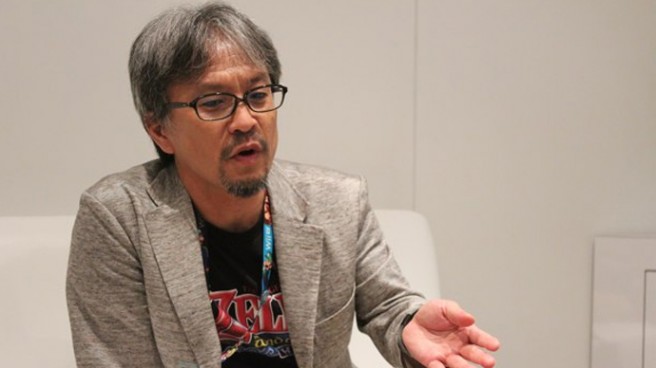Disney Interactive co-president resigns
Posted on 12 years ago by Brian(@NE_Brian) in General Nintendo, News | 0 comments
John Pleasants, co-president of Disney Interactive, has resigned from the company. His leave takes place on Monday, effective immediately. However, Pleasants intends to stay on as a consultant until at least January.
Pleasants said of his departure:
“It was a collaborative decision to do what’s right for the business at a time when we have clear momentum. It’s complicated to have co-presidents. It doesn’t seem to make sense as a long-term strategy.”
“I will tell you that it’s a bit of a mixed thing for me. I would have also been happy to stay on. I would be misleading you if I said I wanted to leave.”
Jimmy Pitaro, Disney Interactive’s other co-president, will now lead the entire division.
More: Disney Interactive, John Pleasants, top
Aonuma on fans’ new affection for Toon Link, thought cel-shading would be used in other games more commonly, no real budget constraints, more
Posted on 12 years ago by Brian(@NE_Brian) in GameCube, General Nintendo, News, Wii U | 5 Comments
GameSpot has put up a new article/interview with Zelda producer Eiji Aonuma. Topics include Toon Link, cel-shading technology, budgets, and more. You can find the Q&A rundown after the break.
Nintendo shuts down fan-made Full Screen Mario project
Posted on 12 years ago by Brian(@NE_Brian) in General Nintendo, News | 9 Comments
Last month, college student Josh Goldberg launched a new project which allowed gamers to play the full Super Mario Bros. game directly in their Internet browsers. “Full Screen Mario” also included randomly generated levels as well as a level editor.
Unfortunately, the website has since been shut down. Nintendo determined the page to be a violation of its IP.
A notice posted on the Full Screen Mario site reads:
More: Full Screen, Mario, top
Norwegian Cruise Line and Nintendo Expand Partnership to Bring Wii U Gaming Fun to Ships
Posted on 12 years ago by Brian(@NE_Brian) in General Nintendo, News, Wii U | 1 Comment
Wii U Games Will be the Focus of On-Board Gaming and Competitions
REDMOND, Wash.–(BUSINESS WIRE)– Norwegian Cruise Line and Nintendo of America announced today that they are expanding their partnership to offer Wii U™ video game systems and Wii U games fleetwide. As part of the partnership expansion, the line will feature Nintendo’s newest video game console in all ships’ atriums and youth and teen centers. In addition, the new HD Wii U systems will be featured at various competitions and events on board each ship.
Norwegian first partnered with Nintendo in March 2007, when Wii™ systems were introduced fleetwide. Now, with the introduction of Wii U, the successor to Wii, the gaming experience is being elevated to new levels. The interactive Wii U gaming system complements Norwegian’s Freestyle Cruising® by offering gaming opportunities to guests of all ages. The new consoles give guests the chance to experience a variety of new action, adventure, party, racing, strategy, puzzle and sports games. Upcoming game rollouts will include The Legend of Zelda™: The Wind Waker HD, a high-definition re-release of one of the greatest Nintendo games of all time; Super Mario™ 3D World, the first multiplayer 3D Mario game for Wii U; New Super Luigi U™, starring Mario’s green-clad brother; Pikmin™ 3, which asks players to command an army of colorful creatures; and The Wonderful 101™, which puts players in control of a band of superheroes fighting off an alien invasion.
More: Norwegian Cruise Line
Michel Ancel thinks of himself as an “apprentice”, Shigeru Miyamoto as a “master”
Posted on 12 years ago by Brian(@NE_Brian) in General Nintendo, News | 2 Comments
Michel Ancel may be the creator of Rayman, but he doesn’t consider himself to be on the same level as Shigeru Miyamoto.
Ancel spoke briefly about how he views himself in comparison to Miyamoto while speaking with ONM recently. Ancel feels he’s more of an “apprentice” whereas “Miyamoto is a master” – or perhaps an “advanced apprentice”.
He said:
“It’s very kind of you to have me with such talented people, but I really consider myself to be an apprentice, where Miyamoto is a master. Well, maybe an advanced apprentice!”
More: Michel Ancel, Shigeru Miyamoto, top, Ubisoft
Infinity Ward won’t rule out a new Call of Duty set in space
Posted on 12 years ago by Brian(@NE_Brian) in General Nintendo, News | 0 comments
Infinity Ward is open to the idea of creating an entire Call of Duty game set in space.
Metro asked executive producer Mark Rubin about the possibility as part of a recent interview. Addressing the possibility, Rubin commented:
Yeah. It makes sense. I wouldn’t count it out. Everything’s on the table. When we start a new game every possibility’s on the table. If we think that it’d be cool to have a battle over Jupiter, sure. Why not?
Later in the interview, while discussing a potential space map as DLC, he said:
“We could do it, but I don’t know… will it be fun? And this is the party pooper version of the answer: you have to measure effort versus payout. Would it be worth that amount of work? Which involves rewriting all the scripts for all the Kill Streaks, potentially creating new art assets for all the Kill Streaks–which would take months–to make one level that’s in space.”
More: Activision, Call of Duty, Infinity Ward, Treyarch
Video: A look at Zelda: Symphony of the Goddesses Second Quest
Posted on 12 years ago by Brian(@NE_Brian) in General Nintendo, Videos | 0 comments
[Feature] Stop with the cat-suits and spin moves: The dramatic presentation of non-difficulty and how it relates to modern Mario
Posted on 12 years ago by Austin(@NE_Austin) in Features, General Gaming, General Nintendo | 41 Comments
Austin note: This thing is not meant to be viewed as a criticism of a game that is not out yet (SM3DW) that I have only played twice before. It is also not meant to be a criticism solely of the Mario franchise. It is, as I hope is clear, a discussion and analysis of gameplay motifs and design philosophies for many kinds of games.
Kenta Motokura is co-director of the upcoming game-that-you’ve-all-heard-of, Super Mario 3D World. In a recent IGN article he said the following regarding the development of the game:
“Going off of our monitor tests, we wanted to see what beginners thought was difficult about the game, and also what was fun about the game. We learned from those tests is that if you were a beginning player, when you come to a cliff, you might stop, think about jumping, then jump and maybe not make it and drop. But what if we added this element of sticking to the wall so you could prevent yourself from dropping down?”
So he brings up this simple question: What if you added an element that prevented less experienced players from falling down?
23 locations participating in Nintendo’s “Holiday Mall Experience”
Posted on 12 years ago by Brian(@NE_Brian) in 3DS, General Nintendo, News, Wii U | 3 Comments
Several Wii U and 3DS titles will be playable at a number of different malls as part of Nintendo’s “Holiday Mall Experience”. The event will take place between November 25 and December 22.
Playable titles include:
Wii U
Super Mario 3D World
The Legend of Zelda: Wind Waker HD
Mario & Sonic at the Olympic Winter Games Sochi 2014
Pikmin 3
The Wonderful 101
Wii Fit U
Wii Sports Club
Wii Party U
Rayman Legends
Just Dance 2014
Splinter Cell Blacklist
Assasin’s Creed IV: Black Flag
Disney Infinity
Batman Arkham Origins
3DS
The Legend of Zelda: A Link Between Worlds
Super Mario 3D Land
Luigi’s Mansion: Dark Moon
Mario Kart 7
Donkey Kong Country Returns 3D
Mario and Donkey Kong: Minis on the Move
Animal Crossing New Leaf
Mario & Luigi Dream Team
Pokémon X & Y
Mario Party Island Tour
Scribblenauts Unmasked
Sonic Lost World
Skylanders Swap Force
The Legend of Zelda: Oracle of Ages
You can find the full list of participating locations here.
More: Holiday Mall Experience, top
Eiji Aonuma says tech difficulties don’t prevent elements from being added to Zelda games
Posted on 12 years ago by Brian(@NE_Brian) in General Nintendo, News, Wii | 0 comments
Technical difficulties do not prevent Nintendo from adding certain elements to Zelda games. That’s according to series producer Eiji Aonuma, who was speaking with GamesTM last month.
Aonuma gave an example by discussing The Legend of Zelda: Skyward Sword. Aonuma said “it was a technical challenge to make Link’s sword swings match the motion controls completely,” and he also had some concerns as to how the feature would be received by players. However, the team ended up pursuing motion controls because Aonuma felt “in the end many users would enjoy the unique gameplay”.
Aonuma told GamesTM:





